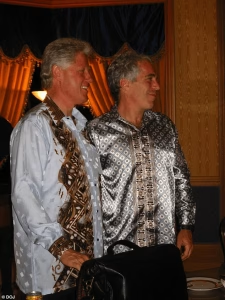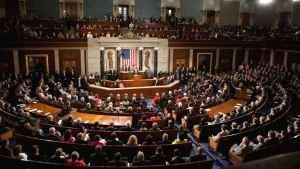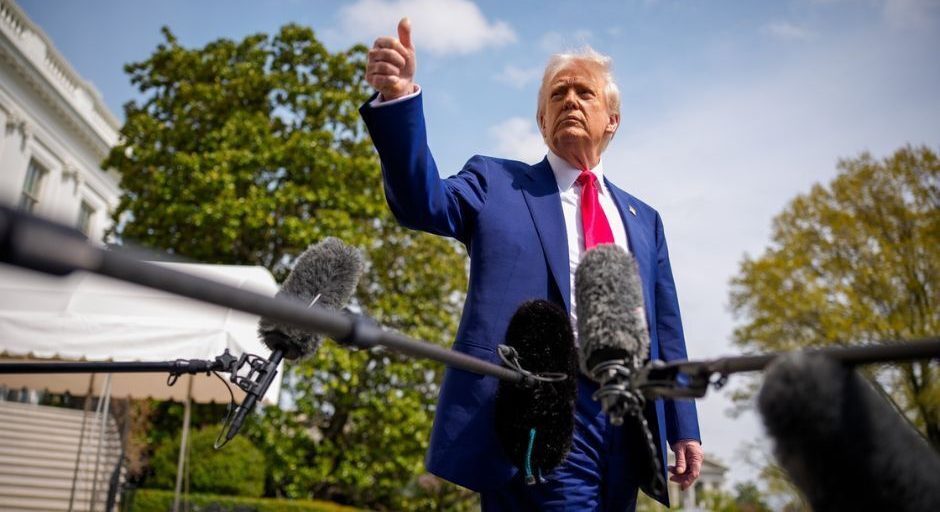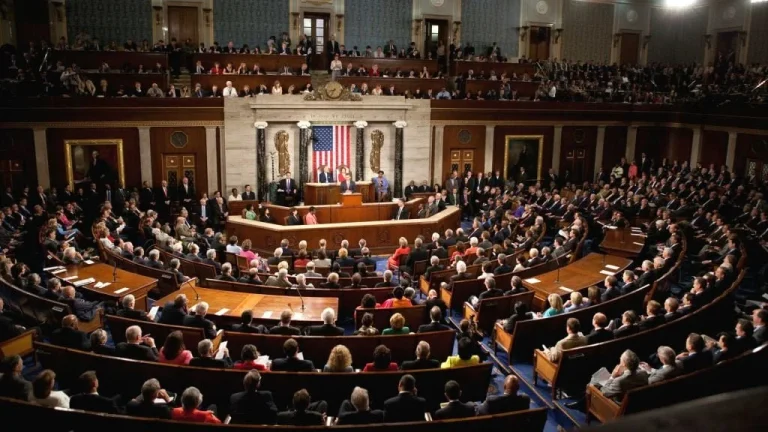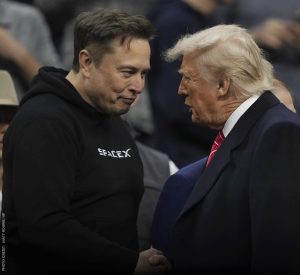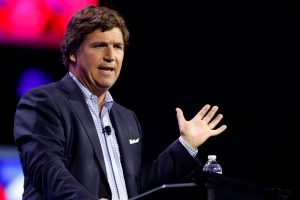A new report is casting doubt on the long-standing reputation of the Congressional Budget Office (CBO) as a nonpartisan institution, raising questions about whether its economic projections are influenced by political leanings more than objective analysis.
The Foundation for Government Accountability (FGA), a conservative think tank, has released a study claiming that the CBO is staffed largely by individuals aligned with the Democratic Party. The report suggests that both declared and undeclared liberal affiliations among CBO employees may be influencing the agency’s methodology and outcomes, especially when it comes to evaluating major policy proposals.
“The CBO likes to portray itself as a purely mathematical organization,” said Hayden Dublois, the FGA’s data director and co-author of the report. “But when that math is grounded in biased assumptions, it’s not just numbers anymore—it’s politics in disguise.”
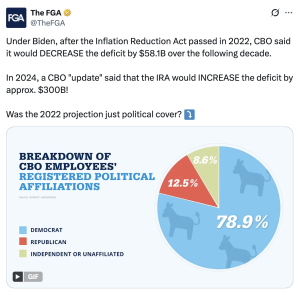
Donation records analyzed in the report show that even self-identified independents on staff have overwhelmingly donated to Democratic campaigns. The findings, according to the FGA, point to a systemic ideological tilt that may be baked into the agency’s forecasting models.
One of the report’s central criticisms is the CBO’s so-called “revolving door” relationship with liberal institutions and congressional offices. Many CBO staffers reportedly begin their careers in Democratic policy shops or progressive think tanks before joining the agency, creating what the report describes as a feedback loop of ideological reinforcement.
These concerns come as the CBO faces criticism for its recent analysis of President Donald Trump’s “One Big Beautiful Bill Act,” which is being advanced through the budget reconciliation process. According to the CBO’s estimates, the bill could increase the federal deficit by $2.4 trillion and leave nearly 11 million Americans without health coverage due to Medicaid restructuring.
However, the White House disputes those numbers. Russ Vought, director of the Office of Management and Budget under Trump, called the CBO’s projections misleading. He argued that once the CBO’s “flawed baseline” is corrected, the legislation would in fact reduce the deficit by $1.4 trillion over the next decade, largely through unprecedented savings in mandatory spending.
Critics say the debate underscores a broader problem: the growing perception that institutions once viewed as neutral referees in Washington’s policy arena are becoming players in the political game. As economic decisions shape the lives of millions, the trustworthiness of the numbers behind them has never been more vital—or more contested.

